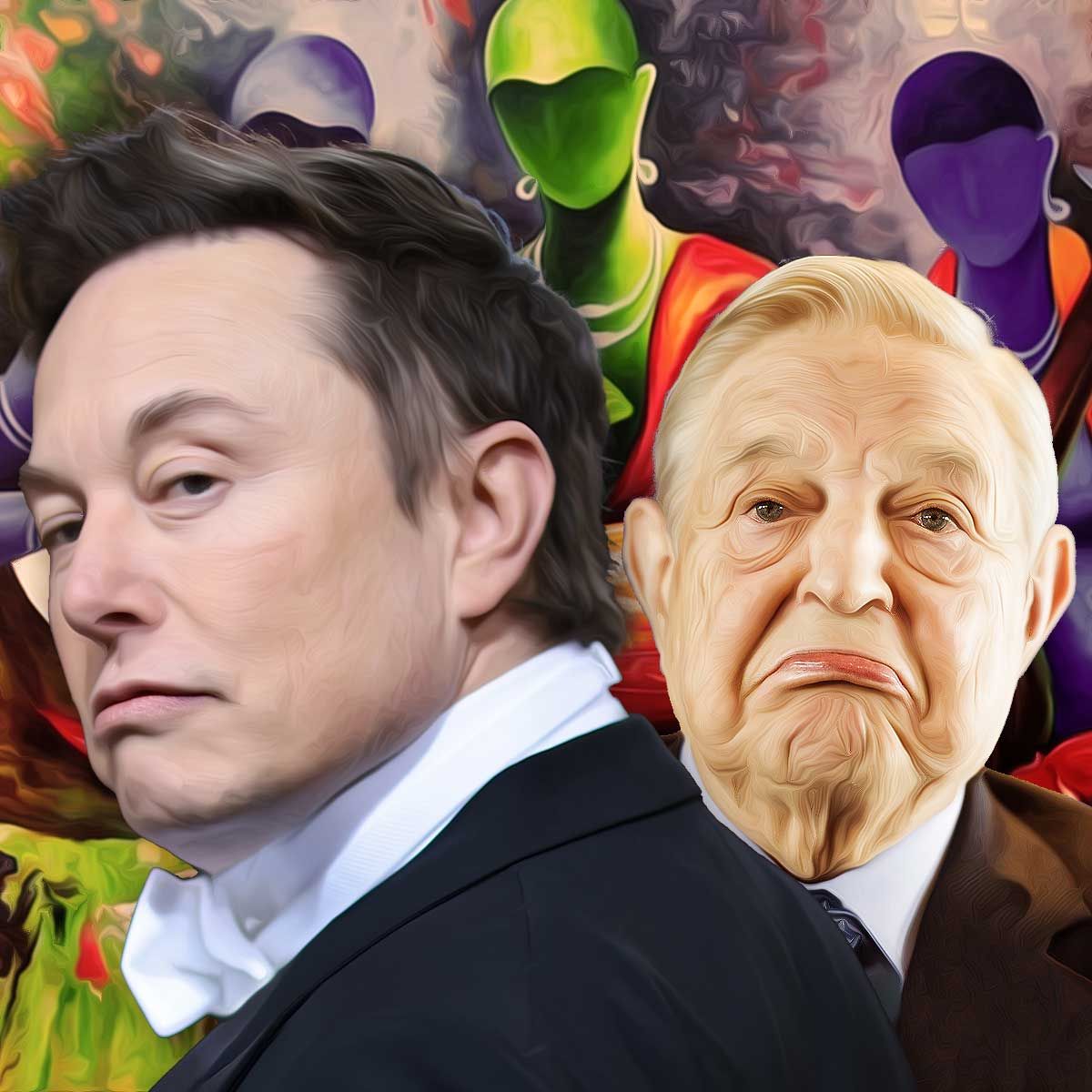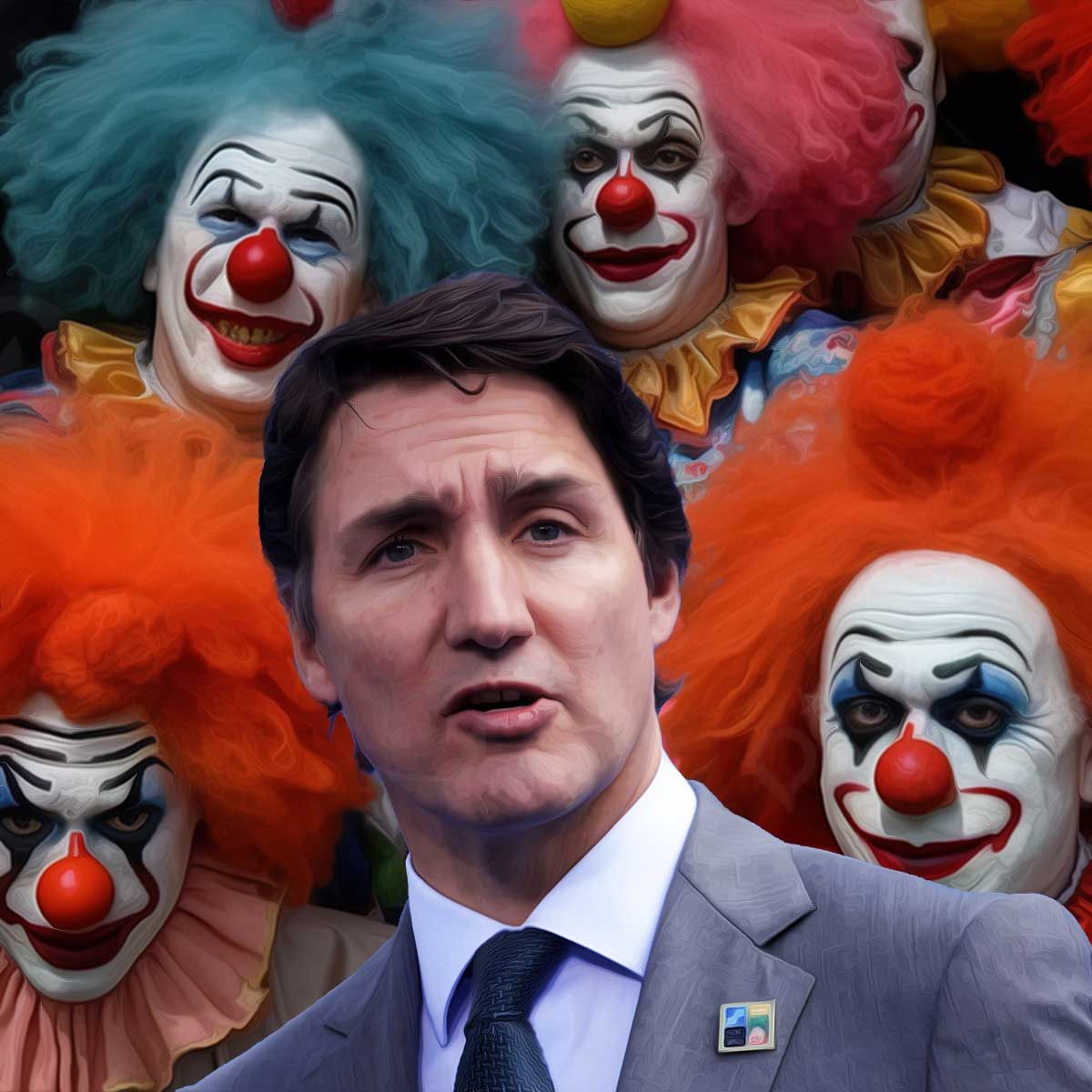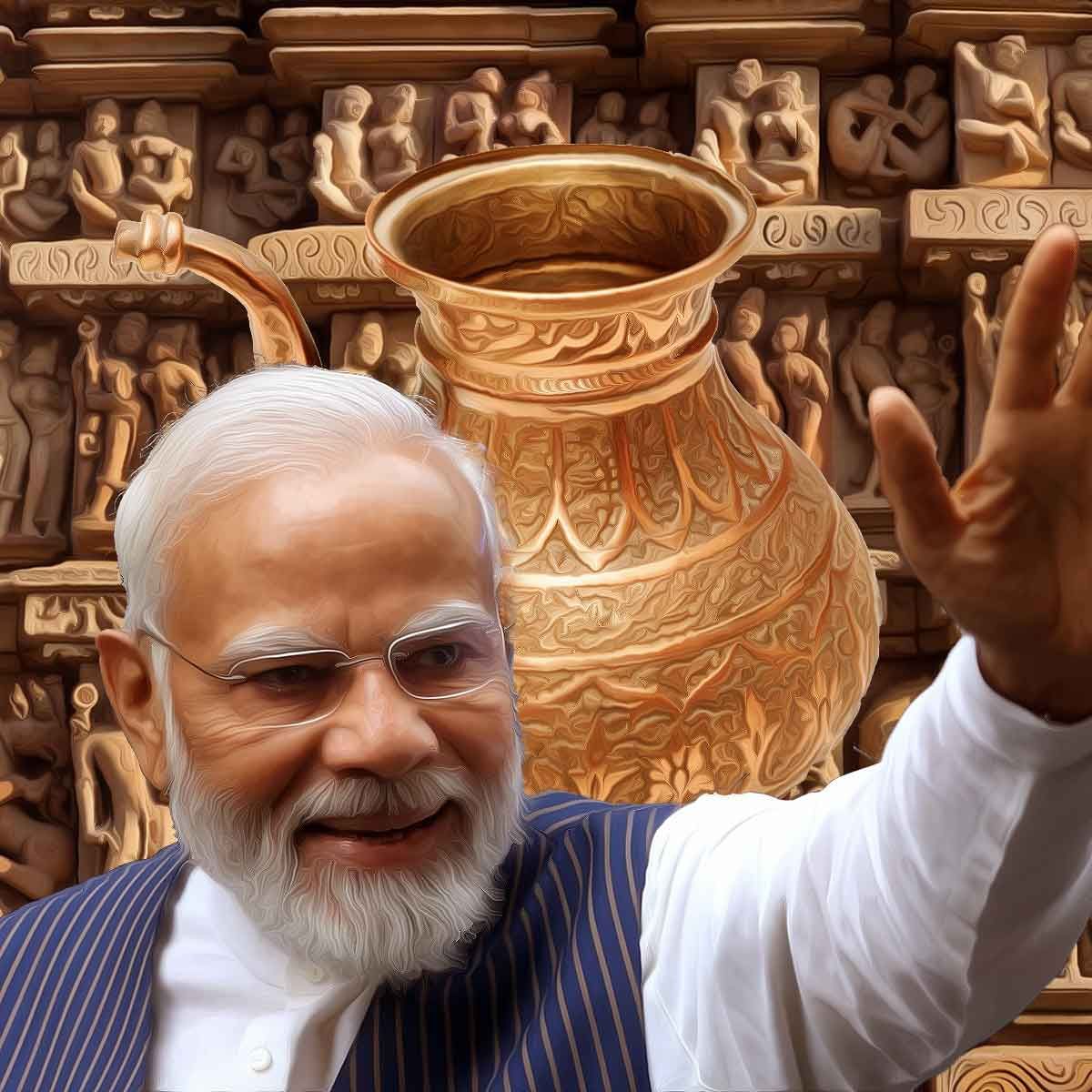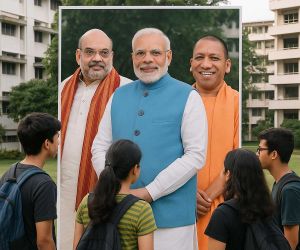MORE COVERAGE
Twitter Coverage
Satyaagrah
Written on
Satyaagrah
Written on
Satyaagrah
Written on
Satyaagrah
Written on
Satyaagrah
Written on
JOIN SATYAAGRAH SOCIAL MEDIA
"Challenging narratives, defending voices": George Soros' influence in India is already under scrutiny as X CEO Elon Musk to file legal action against Soros-funded NGOs' 'hate speech' narrative while sharing American writer Michael Shellenberger report

In a bold and undeterred stance, X CEO Elon Musk has risen as a beacon for free speech against the backdrop of stifling narratives. The innovator, whose platform X was once globally known as Twitter, has thrust himself into the limelight, challenging NGOs funded by George Soros over what he perceives to be a misleading “hate speech” narrative.
|
"X will be filing legal action to stop this. Can’t wait for discovery to start!" This fervent declaration echoed from Musk's tweet, underscoring his resolve. In a shared sentiment, he amplified the voice of renowned American writer Michael Shellenberger, a figure unafraid to question widely accepted perspectives.
Shellenberger's counter to the popular narrative is forceful and backed by data. In his tweet, he dismantled the widespread claims stating, “politicians and George Soros-funded NGOs say 'hate incidents' are rising, but they are not." His conclusion is both heartening and reassuring, revealing that “The data show the opposite: higher-than-ever and rising levels of tolerance of minorities." Why then, he asks, is there a narrative of increasing hate incidents? “The reason they’re spreading hate misinformation is to justify a draconian crackdown on free speech,” Shellenberger suggests.
|
Supporting his claim, a report by “Public”, titled “Soros-funded NGOs demand crackdown on free speech as politicians spread hate misinformation”, sheds light on the nuances of hate offense classifications. The report differentiates between an increase in the reporting of such offenses and an actual rise in incidents. Notably, it highlights that “For police to classify something as a hate offense, no actual proof or evidence is required beyond somebody simply calling it that." This statement is even acknowledged by Ireland's police force, who candidly admit that the criteria for such perceptions is “very low.”
As we navigate through these revelations, we are reminded of the pressing need to stand united against attempts to curtail genuine expression. Free speech is the bedrock of a progressive society, and leaders like Musk, in the face of adversity, prove that it's a right worth fighting for.
|
As the global discourse on free speech continues, a particularly perturbing narrative emerges from Ireland. The very essence of personal freedom seems under threat.
The report that earlier shed light on the ambiguous hate offense classification further elaborates on the scenario in Ireland. Specifically, it delves into the operations of NGOs backed by the Open Society Foundations. Alarmingly, it underscores their role in propelling a censorship agenda not just in Ireland, but also in neighboring Scotland. What might this agenda entail? Nothing less than police searches of personal abodes, mobile phones, and computers.
The overarching narrative around hate crimes, as per the report, seems less about genuine concern for societal harmony and more about establishing tighter controls. All the fervor about rising hate crimes is apparently laying the groundwork for Irish politicians. Their goal? To introduce and pass a stringent new “hate speech” law. The implications of this law are nothing short of chilling.
Possessing any material, be it on paper or digitally, that is deemed “hateful” could soon be a criminal offense in Ireland. Imagine this: law enforcement officers knocking at your door, searching your home for any content they find objectionable. And if they decide to confiscate your electronic devices, you would be bound by law to provide them with your passwords. The alternative is grim – a potential year behind bars coupled with a hefty fine of €5,000.
In a world where personal freedom and digital rights are paramount, such regulations feel regressive. The boundaries of free speech are being tested, and at the heart of this debate lies the question: What price are we willing to pay for our voice?
The chilling reality of the proposed "hate speech" law in Ireland becomes even more palpable when expressed in the words of the very architects behind it. Government politicians, with unsettling candor, have acknowledged that this legislation aims to "restrict freedom." The goal? To simplify the pathway to "secure prosecutions and convictions." But the most startling aspect of this bill is its audacious inversion of one of the foundational principles of justice: the presumption of innocence. Under this proposed law, if you stand accused of planning to distribute any material deemed as "hate," the onus no longer rests on the accuser or the legal system to prove your guilt. Astonishingly, it falls upon you, the accused, to demonstrate your innocence.
But Ireland isn't the sole stage for this unfolding drama on free speech. A similar narrative resonates in India, a nation with a rich history of diverse voices and spirited debates. The shadow of George Soros and the Open Society Foundation stretches long, with their "hate speech" rhetoric finding echoes in various corners of the Indian media landscape. Entities such as The Wire, Alt News, and personalities like Rana Ayyub, Arfa Khanum Sherwani, Mohammed Zubair, Ravish Kumar, and Rahul Gandhi, to name a few, have had associations with Soros or his organizations at different junctures. Even Newsclick, which has alleged financial ties to China, has not been immune to these connections.
As nations grapple with the evolving definition of free speech and its limits, it's evident that the roots of this debate are deep-seated and intertwined with global power plays and vested interests.
In May this year, Elon Musk took a jibe at Soros saying “Soros hates humanity.” X owner and billionaire Elon Musk had said he would prefer freedom of speech over money and say whatever he wants during an interview with David Faber for CNBC. Faber had questioned him about the recent tweets about George Soros, where Elon Musk drew a parallel between Soros and the fictional comic villain character Magneto and said that George Soros hates humanity.
The Soros Conundrum: A web of influence across Borders
The name "George Soros" has become synonymous with global influence, philanthropy, and political activism. A Hungarian-American business magnate, Soros paints himself as a champion for democracy, often challenging what he deems as 'authoritarian governments'. He's fervently declared his intent to counter nationalist and conservative movements around the globe. But amidst all his proclamations, one nation seems to bear the brunt of his disdain - India, especially its nationalist administration helmed by Prime Minister Modi.
Soros' brainchild, the Open Society Foundation, landed on Indian shores back in 1999. Under the benevolent guise of offering scholarships and fellowships for Indian institutions, it planted its roots. However, what seemed like a noble endeavor slowly unveiled a more calculated intent. Instead of merely promoting education and research, the Soros-led entity began backing anti-India elements, fostering internal discord.
His web, intricate and expansive, has been instrumental in cultivating a cadre of intellectuals in India. Their primary mission? Opposing the nation's core and its leadership, especially the Modi-led government. A pivotal moment came in 1995 when Soros laid the foundation for the Media Development Investment Fund. This not-for-profit entity, fueled by Soros' resources, aimed to support 'independent media', challenging India's narrative.
But Soros' machinations aren't confined to India's borders. His reach, vast and penetrative, has extended its grasp to prominent Indian personalities overseas. Notably, during a U.S. tour this year, Rahul Gandhi, a prominent figure in Indian politics, was spotted alongside individuals like Sunita Vishwanath, dubbed a 'Soros proxy' by the US-based HinduACTion.
Earlier in March, Simran Jeet Singh, associated with Soros' Open Society Foundations, criticized the Indian government. Accusing it of curtailing fundamental human rights, he took particular issue with the actions against Amritpal Singh, who the Punjab police identified as a Khalistani extremist.
George Soros' influence, be it direct or indirect, has undeniably played a role in shaping perceptions about India, both internally and globally. But as with all narratives, discerning fact from fiction becomes essential.
 Support Us
Support Us
Satyagraha was born from the heart of our land, with an undying aim to unveil the true essence of Bharat. It seeks to illuminate the hidden tales of our valiant freedom fighters and the rich chronicles that haven't yet sung their complete melody in the mainstream.
While platforms like NDTV and 'The Wire' effortlessly garner funds under the banner of safeguarding democracy, we at Satyagraha walk a different path. Our strength and resonance come from you. In this journey to weave a stronger Bharat, every little contribution amplifies our voice. Let's come together, contribute as you can, and champion the true spirit of our nation.
 |  |  |
| ICICI Bank of Satyaagrah | Razorpay Bank of Satyaagrah | PayPal Bank of Satyaagrah - For International Payments |
If all above doesn't work, then try the LINK below:
Please share the article on other platforms
DISCLAIMER: The author is solely responsible for the views expressed in this article. The author carries the responsibility for citing and/or licensing of images utilized within the text. The website also frequently uses non-commercial images for representational purposes only in line with the article. We are not responsible for the authenticity of such images. If some images have a copyright issue, we request the person/entity to contact us at This email address is being protected from spambots. You need JavaScript enabled to view it. and we will take the necessary actions to resolve the issue.
Related Articles
- Islamists are raging Land Jihad by encroaching iconic Maharashtra forts through illegal constructions within the premises, falsifying history by inventing fictional characters
- Anti-Brahmin rants, mobilizing the Muslim community, Cow protection, bringing ‘Hindustan to knees’, incitement to violence, and many more: Detail analysis of order framing sedition, other charges against Sharjeel Imam
- "Hope Declined": In a heart-wrenching incident, a 14-year-old boy loses his life in the Maldives after President Muizzu denies Indian aircraft for emergency aid; since Muizzu's reign, life-saving Indian helicopters and planes hinge on his direct approval
- Sonam Wangchuk, after attending Pakistan's climate conference hosted by Dawn Media, led Pune protests against the Riverfront project, previously insulted Lord Ram and Mata Sita, opposed Ladakh's army construction and faced backlash for anti-India activism
- Lt Col Purohit's shocking testimony to the NIA court exposes torture by ATS to force accusations against RSS, VHP, and Yogi Adityanath in the Malegaon blast, revealing deep-seated plots involving ISI agents and an attempt to coin the term 'Saffron Terror'
- "Your intentions and actions create ripples in the universe. Make them count": Avtar Singh Khanda, an asylum seeker Khalistani terrorist passed away in a UK hospital in Birmingham late last night after NIA released 45 wanted criminals for identification
- Terrorist Organization SFJ chief Pannu threatens PM Modi and India after the security breach, says ‘Tiranga wale fled from Punjab’
- Campus Front of India group carries out rally promoting violence against UP CM Yogi Adityanath
- "Andolanjeevi": Case registered against ‘activist’ Medha Patkar, who gained notoriety in a cheating case of “Narmada Bachao Andolan,” accused of misusing funds of educating tribal children, received donation in crores for her NGO
- "Hathi Ghoda Palki Jai Kanheya Lal Ki": Posts highly provocative, sufficient to incite hatred among people - FIR lays down serious allegations against Mohd Zubair, arrested due to evasion and non-cooperation, formatted his phone before arrest
- Modi govt crushed Soros-funded Reporters’ Collective’s falsehoods by revoking its non-profit status after it peddled fake poverty data, ignoring NITI Aayog’s work with OPHI & UNDP, while being bankrolled by Ford, Omidyar, Rockefeller, and Open Society
- After Ladakh cancelled Sonam Wangchuk’s 135-acre HIAL land in Phywang over violations and unpaid dues, Pakistan handlers rushed to back him online, twisting facts into a false witch hunt narrative to target India and fuel dangerous propaganda
- "अच्छा": Despite serious allegations, the court granted interim bail to Meeran Haider, a PhD student who orchestrated the 2020 anti-Hindu Delhi riots, mobilizing crowds and coordinating violence across 20 sites, revealing deep-seated plots against CAA-NRC
- Wikipedia dismisses Love Jihad as a conspiracy theory by Hindus, but claims reverse Love Jihad against Muslims is real
- "Hate is too great a burden to bear": As India strides towards development, IIT Delhi's Prof. Divya Dwivedi incites anger, calling for the wiping out of Hinduism at the global G20 Summit, fostering division rather than appreciating the nation's progress

























